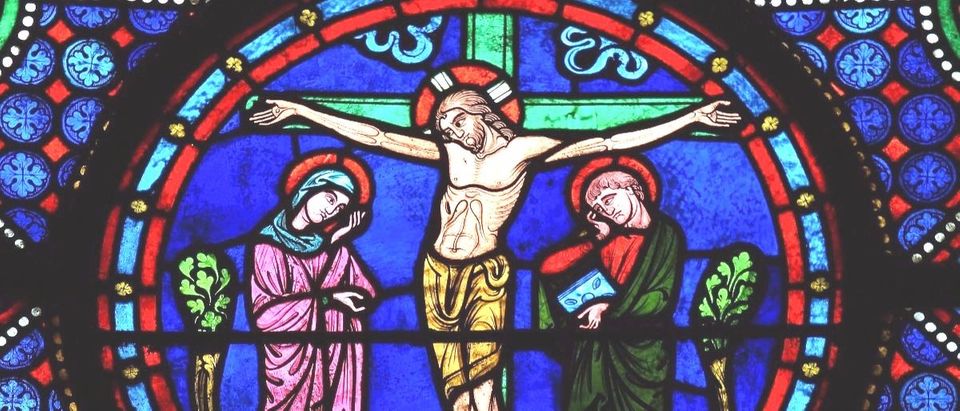Contrary to former President George W. Bush, texts held sacred by Muslims and even some notable Catholic and Protestant church leaders, Muslims and Christians do not worship the same god and that’s why their societies are so radically different.
The idea that the world’s two largest monotheistic religions pray to the same god became a commonplace in the aftermath of 9/11, likely due in great part to Bush, who sought to unify secular Western liberals and Christians with moderate Muslims in the war on terror.
“I believe we worship the same god,” Bush said on many occasions, both during his two terms in the Oval Office and in the years since. He’s also frequently repeated a related myth, telling ABC’s Charles Gibson in a 2011 interview, for example, that “we all have different routes of getting to the Almighty.”
Similarly, here’s what the Surah (29:46) tells Muslims to do when talking with Christians and Jews about Allah: “Do not dispute other than in a good way with the people of Scripture, except for those of them who do evil; and say ‘We have faith in that which has been revealed to us and revealed to you. Our God and your God are One, and to Him we submit [ourselves].'”
Pope John II would undoubtedly agree, and there are mainline Protestant voices who would as well. That’s the way of myths; they sound so reasonable and right and may even be logical on the surface, but a closer examination of the fundamental beliefs of Christians and Muslims about the divine exposes the claim’s utter emptiness.
Begin with how the two faiths view Jesus Christ. Christians believe Jesus’ claims about Himself. At John 8:58, He said “Truly, truly, I say to you, before Abraham was, I am.” At John 14:6, He put it this way: “I am the way, the truth, and the life. No one can come to the Father except through me.” And at John 8:58: “I and the Father are one.”
As Josh McDowell famously said, to make such claims, one has to be either the Lord or a lunatic, there is no middle ground.
There definitely is no middle ground in Islam concerning Jesus. Faith in Jesus is the worst kind of blasphemy. “Islam” means “submission” or “surrender.” Muhammad described Allah at Surah 112 as: “Say: he is God, the One and Only God, the Eternal, Absolute; He begetteth not, nor is He begotten. And there is none like unto Him.”
That is why the Christian Trinity — God the Father, God the Son, and God the Holy Spirit — is the ultimate heresy for Muslims. To be absolute, Allah must be one and utterly other than man. To believe otherwise is to commit the idolatry Muslims call “shirk,” worshipping multiple gods, or polytheism.
Muslims do affirm that Jesus was a prophet, but they utterly reject the Christian understanding that He died on the cross to solve man’s sin problem and that His resurrection three days after His death verified His claim to be God. For the Muslim, it is simply inconceivable that Allah would become a mere man or die a mortal death for any reason whatsoever.
That’s why Islam focuses on externals. Sharia law is the means by which every aspect of daily life is brought under submission to Allah’s demands, including politics and civil society, economics, the social realm, sports, the military and international relations.
The worth of every individual person and every element of Muslim society is judged by the degree to which it is submitted to Allah. The only “change” or “salvation” in Muslim society is progress toward total surrender to the will of Allah. As is said at Surah 33:36: “It is not for a believer, man or woman, when Allah and His Messenger have decreed a matter that they should have any choice in their decision.”
It could hardly be more different with Christianity. The separation of church and state, for example, that secular and religious Westerners alike have taken for granted for four centuries is rooted in Jesus’ saying at Mark 12:17 “render unto Caesar what is Caesar’s and to God what is God’s.”
That separation derives from the fact that “change” in society for the Christian begins with the heart of each individual person, what Jesus called being “born again” in His conversation at John 3:3 with Nicodemus.
Some might even call it the “come to Jesus meeting.”
Mark Tapscott is executive editor of the Daily Caller News Foundation and chief of its Investigative Group. Follow Mark on Twitter.


